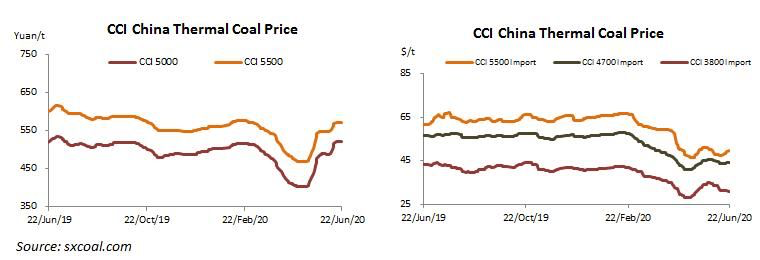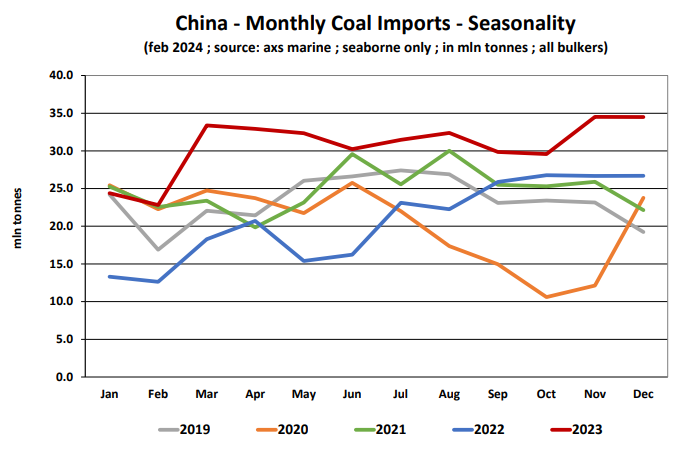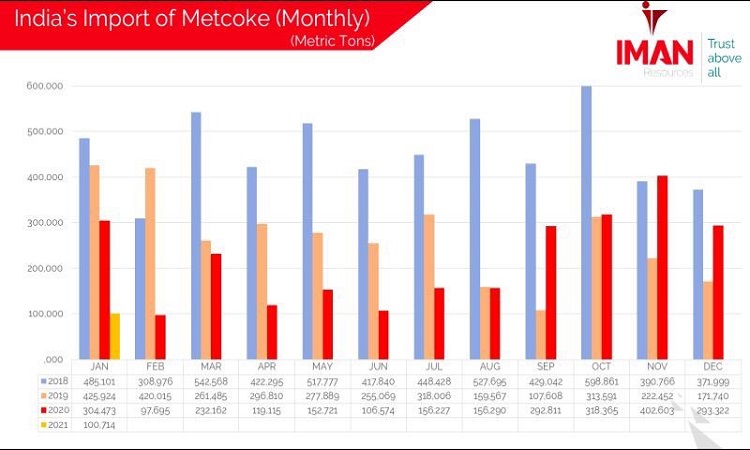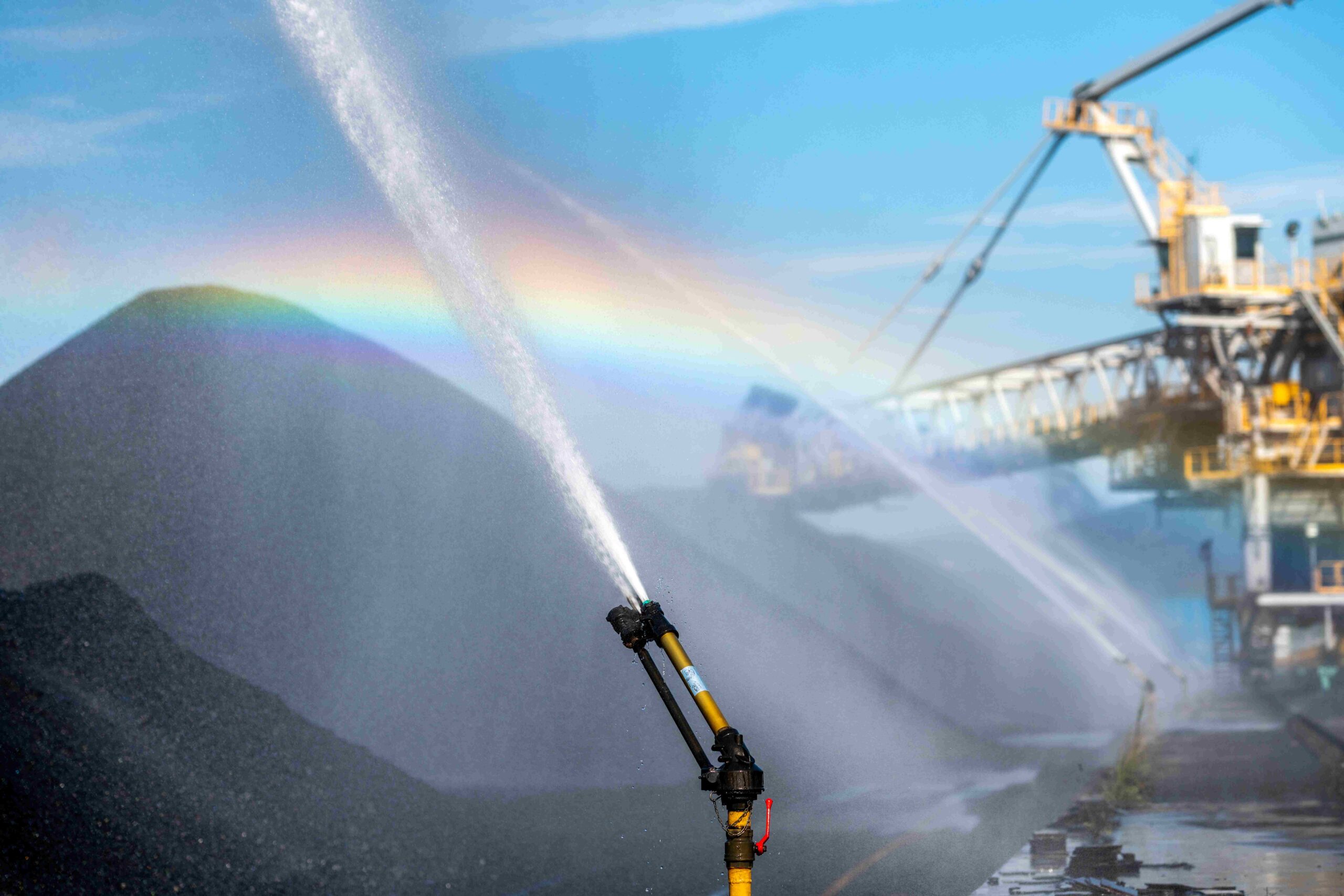
Currently, Chinese domestic 5,500 Kcal/kg NAR thermal coal is traded around 575 yuan/t FOB with VAT northern ports, while Australian coal of the same grade are done at 395 yuan/t on a CFR South China basis, also inclusive of VAT. If shipping rates from China’s northern ports to south ports are taken into consideration, the current price of domestic 5,500 Kcal/kg NAR coal stands above 600 yuan/t CFR with VAT at southern ports. The arbitrage, therefore, is supposed to some 200 yuan/t, if additional charges for imported coal are considered.
The large price gap fundamentally rests in the tightened import policy. As China has already imported too much coal in the first five months, some utilities have no import quotas le for the rest of the year. Customs authorities suspended clearing services for those who don’t have quotas. Many utilities typically dependent on import fuel, therefore, have to look for the domestic market.
If without fresh quotas to be allocated or the policy to be eased, the polarization will remain and even intensify. It’s unknown whether China will change the policy before the summer peak demand period. One way or another, Australian thermal coal will maintain a great price advantage. End buyers who have quotas may keep importing Australia coal. Australian 5,500 Kcal/kg NAR thermal coal is priced around 615-620 yuan/t ex-stock with VAT at Guangzhou port and 600-610 yuan/t at Fangcheng port, exactly the same prices with coal stocks produced in Shanxi or Inner Mongolia.
For some small-sized users, including cement plants, ceramic factories and paper mills, they don’t import coal directly but buy stocks at Guangzhou and other southern ports. So the import policy has limited impact on their cost calculation. Chinese domestic market has been stable for over a week, putting an end to a weeklong rising. Obviously, the market sentiment has changed along with a pickup of stocks at northern ports. Data from sxcoal.com showed the stock of Qinhuangdao port continued with continuous rise last week, which started from a recent low of 3.92 million tonnes on June 5, to 4.88 million tonnes as of June 22.
Even though some traders reported supply tightness, the overall situation has been much alleviated. This made downstream buyers think twice whether they should connue restocking at current price level or do it later when the price falls lower. In this case, the market kicked off this week with another quiet session.
One 4,500 Kcal/kg NAR thermal coal cargo was traded at a 3 yuan/t premium to Fenwei CCI index, according to an Inner Mongolia-based trader. He said the demand was tepid as a whole as buyers were sidelined again. “In the short term, I don’t think the market could pick up again, even as it gets some support from the growing prices at production areas.
But I expect this to support the market to remain stable rather than falling down.” he said. The market also saw some trades concluded at 565-570 yuan/t FOB for the 5,500 Kcal/kg NAR thermal coal, but all of them changed hands among traders. End buyers remained absent of the market. Offer prices for 5,500 Kcal/kg NAR coal were mainly around 575-576 yuan/t FOB on June 22, almost unchanged from late last week, countered by a bid of 569 yuan/t. Cargoes of 5,000 Kcal/kg NAR thermal coal were offered at 524-525 yuan/t.
On June 22, Fenwei CCI 5500 index, gauging 5,500 Kcal/kg NAR thermal coal at northern ports, came in unchanged day on day at 570 yuan/t FOB with VAT, stabilizing for five straight days. The CCI 5000 index stood at 520 yuan/t, and the 4500 index was at 459 yuan/t, both flat from the day prior.
Follow SXCoal on Twitter:
[tfws username=”sxcoal” height=”700″ width=”350″ theme=”light” color=”#FAB81E” tweets=”2″ header=”yes” footer=”yes” borders=”yes” scrollbar=”yes” background=”yes”]



